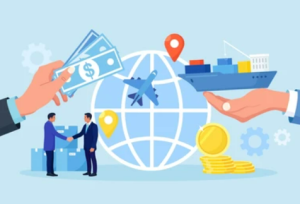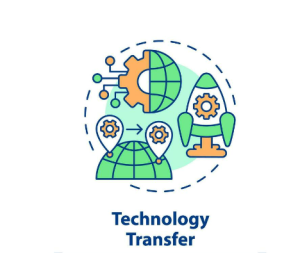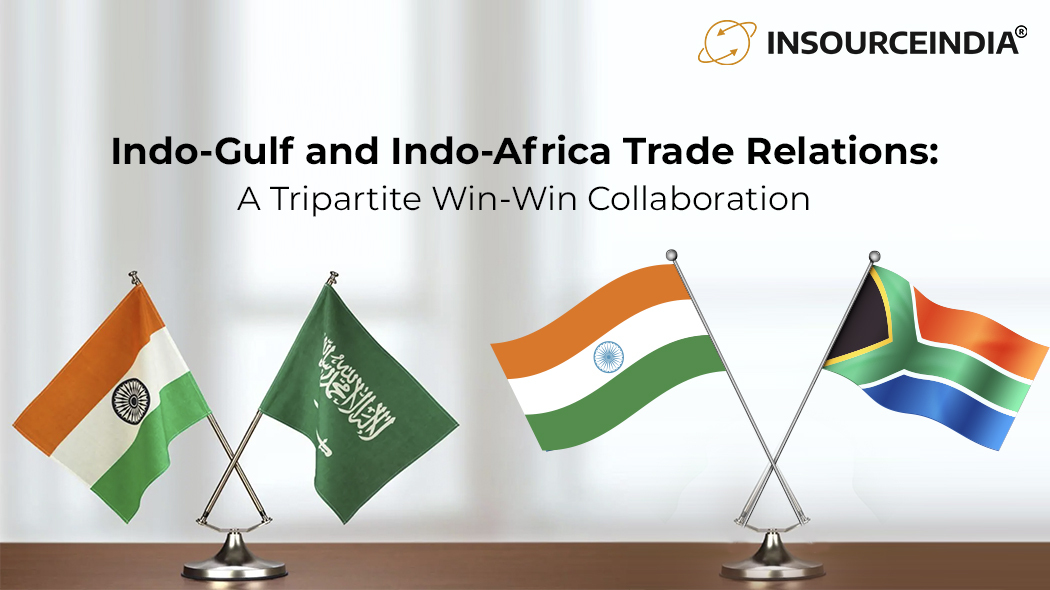In this current era of global interconnectedness, nations are increasingly recognizing the importance of cultivating robust economic ties for mutual benefit. The Indo-Gulf and Indo-Africa trade relations exemplify a distinctive and mutually advantageous partnership that has yielded substantial benefits for India, the Gulf countries, and African nations alike.
This article explores the dynamics of this triangular relationship, shedding light on how it has created a win-win situation for all three regions involved.

At the core of the Indo-Gulf partnership lies the exchange of energy resources. Gulf nations, rich in oil and gas reserves, supply these vital commodities to India, thereby securing a stable market for their exports. According to data from the Ministry of Petroleum and Natural Gas of India, the Gulf countries collectively account for over 20% of India’s oil imports in 2022 (US$17.84 Billion) according to the United Nations COMTRADE database on international trade.
Simultaneously, India’s burgeoning economy provides the Gulf with a reliable market, contributing to their economic diversification. A similar pattern emerges in Indo-Africa trade relations, where India’s demand for raw materials is met by African nations, and in return, Indian industries support African economic development through markets for their exports.

The Indo-Gulf relationship extends beyond mere trade, with Gulf nations actively participating in India’s infrastructure development. Indian companies contribute to major construction projects in the Gulf, fostering economic growth in the region. According to the Gulf Cooperation Council (GCC), India is among the top five trading partners of the GCC countries, with bilateral trade reaching billions of dollars annually.
Meanwhile, Gulf investments in Indian infrastructure projects help meet the vast developmental needs of India. In the Indo-Africa context, India’s involvement in infrastructure development projects across the continent supports economic growth, opening new markets and strengthening diplomatic ties.

Diversifying trade partners is a strategic imperative for both India and the Gulf nations. The Indo-Gulf trade relationship helps mitigate economic risks by reducing dependency on traditional trading partners. According to the Ministry of Commerce and Industry of India, the Gulf countries collectively represent a significant portion of India’s non-oil exports.
Similarly, Indo-Africa trade relations offer India an opportunity to diversify its sources of raw materials and markets for finished goods, promoting innovation and competitiveness for all involved parties. India’s exports to Africa stood at US$ 51.2 billion in 2022-23, and mainly comprised petroleum products, pharmaceuticals products, vehicles other than railway or tramway, machinery, sugar and confectionery, electrical machinery and equipment, plastics and articles and cotton. The bilateral trade of India with Africa grew by 9.26 per cent in FY 2022-23 reaching almost USD 100 billion.
On the sidelines of the Group of Twenty (G20) summit in New Delhi, India, the United States, United Arab Emirates, Saudi Arabia and the European Union agreed to create a transport and economic corridor connecting the South Asia with Gulf monarchies and European countries. Dubbed the “India – Middle East – Europe Corridor” (IMEC), the parties signed a corresponding memorandum of understanding.

Beyond the exchange of goods, the Indo-Gulf and Indo-Africa partnerships involve the transfer of technology and expertise.
Gulf nations, with their advanced infrastructure and technologies, facilitate knowledge transfer to India, enhancing its technological capabilities. In the Indo-Africa context, Indian expertise in areas such as information technology, agriculture, and healthcare support African development, contributing to sustainable growth.
The top six African exporters to India are Nigeria, South Africa, Angola, Egypt, Algeria and Morocco. The Indo-Gulf and Indo-Africa trade relations serve as models of collaboration that extend beyond economic transactions, fostering economic development, enhancing energy security, and promoting technological advancements. As the world grapples with intricate geopolitical and economic challenges, these partnerships exemplify the potential for mutual prosperity through strategic collaborations. In the context of Indo-Gulf and Indo-Africa trade relations, fostering such collaborations is crucial for navigating the complexities of the global economic landscape.
Additionally, companies seeking to leverage the benefits of the Indo-Gulf and Indo-Africa trade relations can turn to InsourceIndia. According to their recent performance data, InsourceIndia has successfully facilitated the entry and expansion of numerous international companies in India. As a facilitator for companies looking to build, set up operations, and expand in India, InsourceIndia plays a pivotal role in navigating the complexities of finding the right individuals, ensuring compliant employment practices, fostering cultural integration, and establishing an infrastructure that promotes high performance and a sense of belonging. InsourceIndia stands as a valuable partner in maximizing the advantages of these flourishing trade relationships.

